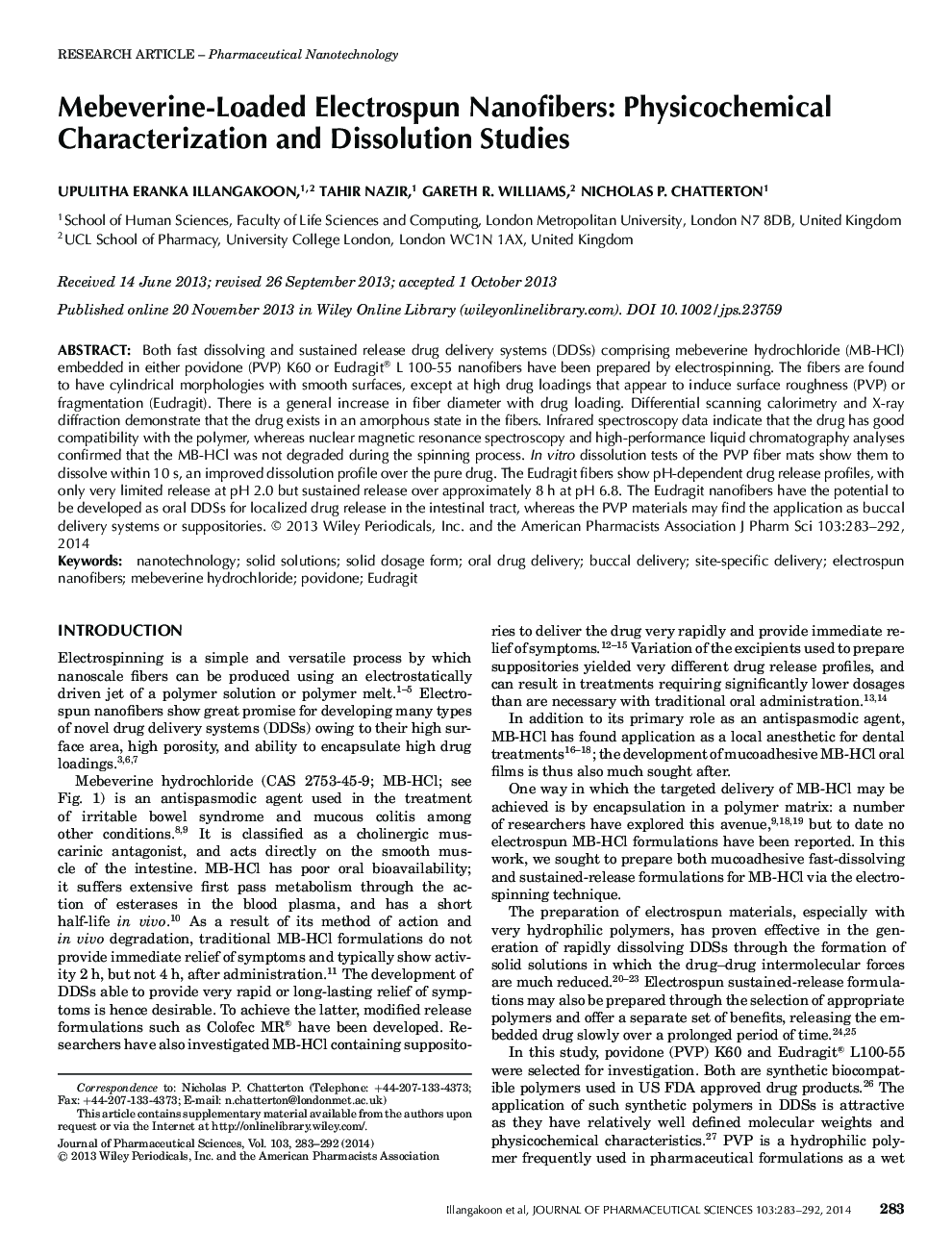| Article ID | Journal | Published Year | Pages | File Type |
|---|---|---|---|---|
| 10162660 | Journal of Pharmaceutical Sciences | 2014 | 10 Pages |
Abstract
Both fast dissolving and sustained release drug delivery systems (DDSs) comprising mebeverine hydrochloride (MBâHCl) embedded in either povidone (PVP) K60 or Eudragit® L 100â55 nanofibers have been prepared by electrospinning. The fibers are found to have cylindrical morphologies with smooth surfaces, except at high drug loadings that appear to induce surface roughness (PVP) or fragmentation (Eudragit). There is a general increase in fiber diameter with drug loading. Differential scanning calorimetry and Xâray diffraction demonstrate that the drug exists in an amorphous state in the fibers. Infrared spectroscopy data indicate that the drug has good compatibility with the polymer, whereas nuclear magnetic resonance spectroscopy and highâperformance liquid chromatography analyses confirmed that the MBâHCl was not degraded during the spinning process. In vitro dissolution tests of the PVP fiber mats show them to dissolve within 10 s, an improved dissolution profile over the pure drug. The Eudragit fibers show pHâdependent drug release profiles, with only very limited release at pH 2.0 but sustained release over approximately 8Â h at pH 6.8. The Eudragit nanofibers have the potential to be developed as oral DDSs for localized drug release in the intestinal tract, whereas the PVP materials may find the application as buccal delivery systems or suppositories. © 2013 Wiley Periodicals, Inc. and the American Pharmacists Association J Pharm Sci 103:283-292, 2014
Keywords
Related Topics
Health Sciences
Pharmacology, Toxicology and Pharmaceutical Science
Drug Discovery
Authors
Upulitha Eranka Illangakoon, Tahir Nazir, Gareth R. Williams, Nicholas P. Chatterton,
